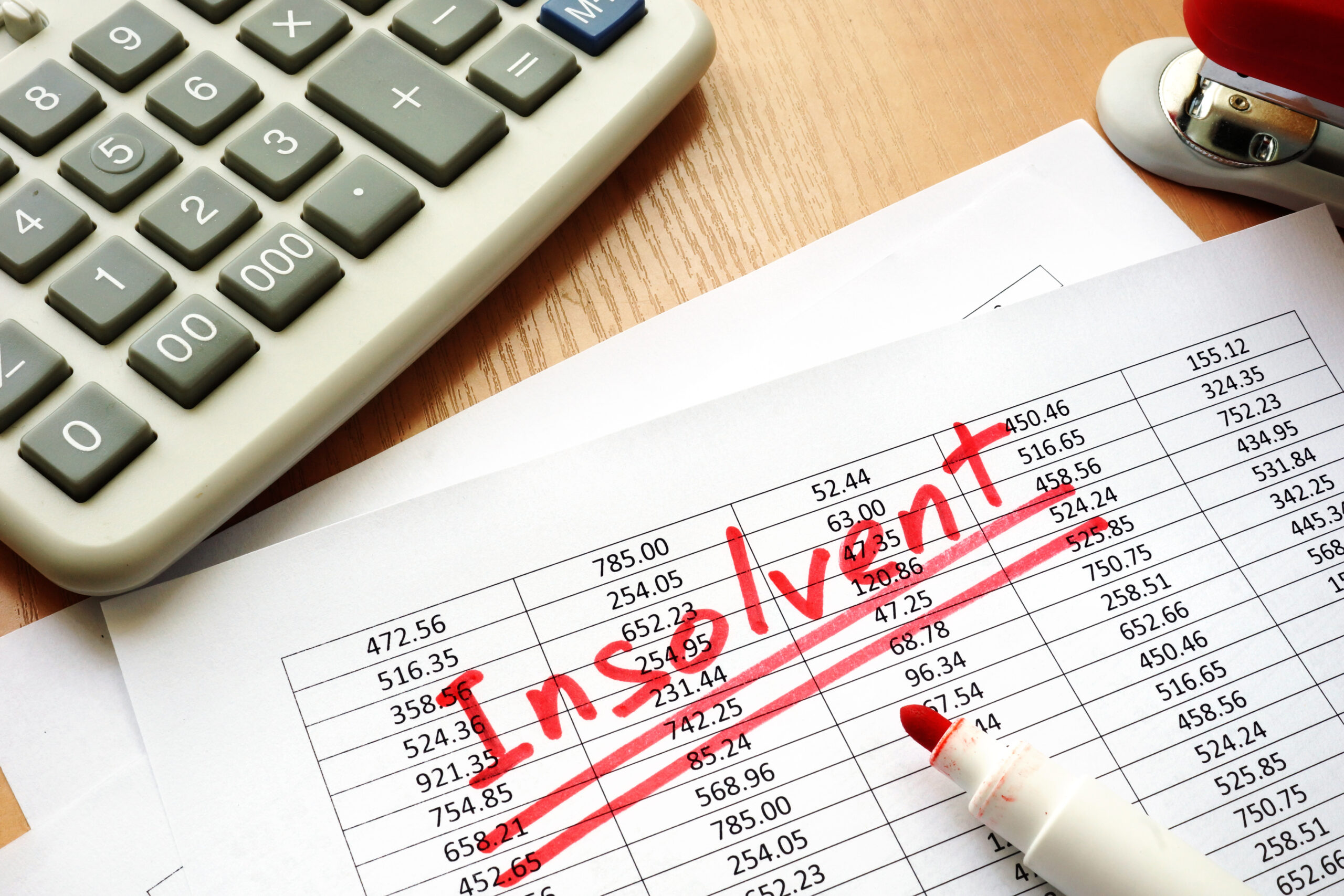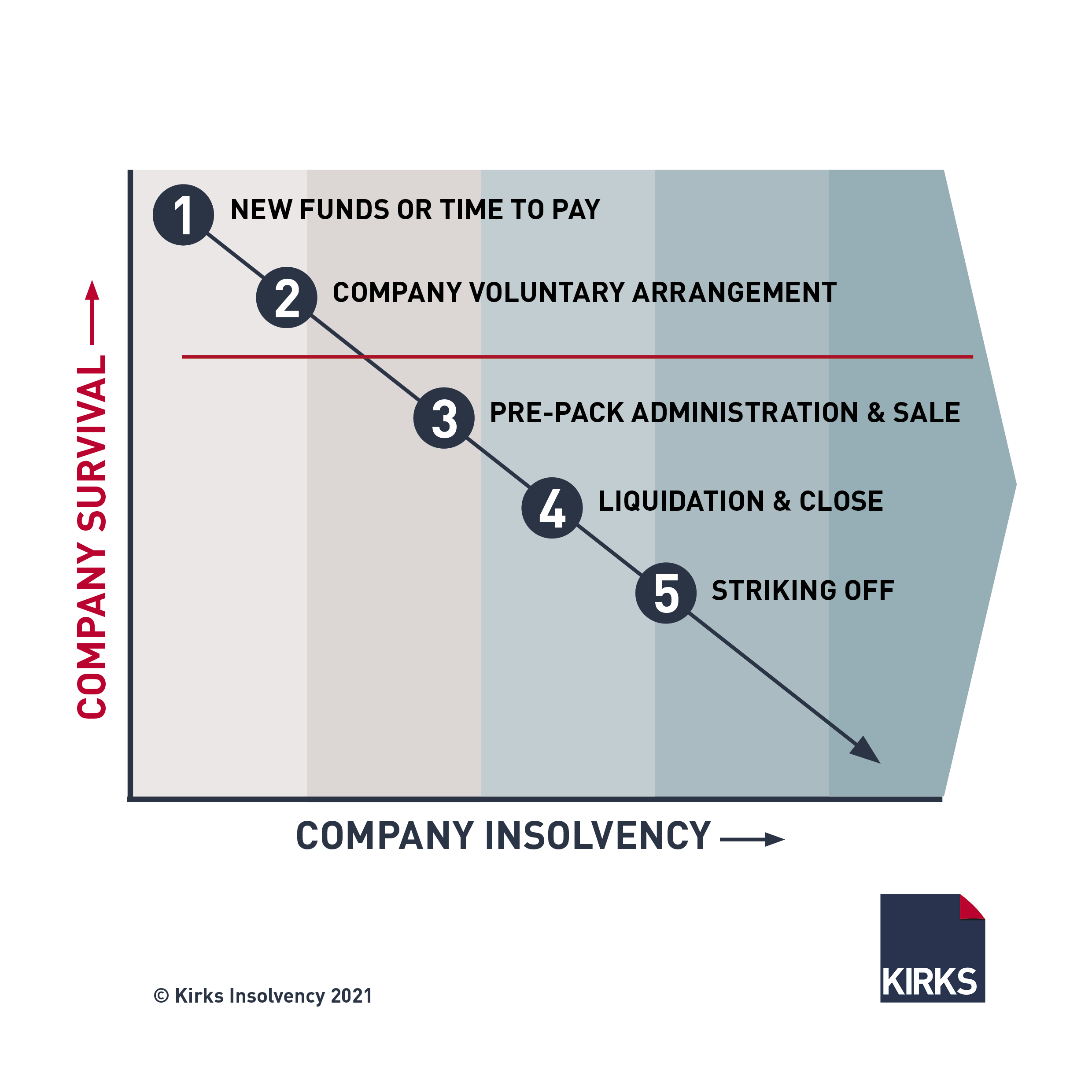The Of Insolvency Practitioner
The Of Insolvency Practitioner
Blog Article
The Ultimate Guide To Insolvency Practitioner
Table of ContentsThe 8-Minute Rule for Insolvency PractitionerInsolvency Practitioner - QuestionsNot known Incorrect Statements About Insolvency Practitioner Some Known Facts About Insolvency Practitioner.The Only Guide to Insolvency PractitionerThe Greatest Guide To Insolvency PractitionerThe Main Principles Of Insolvency Practitioner
Insolvency is when obligations are higher than the value of the business, or when a borrower can not pay the financial debts they owe. A firm can become insolvent as a result of a variety of scenarios that result in poor capital. When confronted with bankruptcy, a service or person can contact creditors directly and restructure financial debts to pay them off.
Organization owners might call financial institutions straight and restructure financial obligations right into more workable installations. Financial institutions are typically responsive to this technique due to the fact that they want to be paid back and avoid losses, even if the repayment is on a postponed timetable.
The owner creates a proposition detailing just how the debt might be restructured utilizing expense decreases or various other plans for assistance. The proposition shows lenders how business might generate adequate capital for lucrative operations while paying its financial debts. Typically, a forgiven debt might be considered income by the Irs (INTERNAL REVENUE SERVICE).
Insolvency Practitioner Things To Know Before You Buy
When a service has to pay enhanced prices for items and services, the company passes along the price to the consumer. Instead of pay the raised price, numerous consumers take their service in other places so they can pay much less for a services or product. Losing clients results in shedding earnings for paying the business's creditors.
When operations stop, so does the firm's income. Some firms come to be bankrupt due to the fact that their products or services don't advance to fit customers' altering needs.
Insolvency Practitioner Things To Know Before You Get This
Expenditures go beyond earnings and bills stay unpaid. Types of insolvency include cash-flow bankruptcy and balance-sheet bankruptcy. Cash-flow bankruptcy takes place when a company has the possessions to cover their financial obligations but they remain in the wrong type, such as genuine estate rather than fluid funds. Balance-sheet bankruptcy, on the other hand, suggests a lack of properties in any type of type to cover debts.
The internal revenue service states that a person is financially troubled when the overall responsibilities go beyond total assets. Insolvency Practitioner. A bankruptcy, on the other hand, is a real court order that illustrates exactly how an insolvent person or organization will certainly pay off their financial institutions, or exactly how they will certainly sell their assets in order to make the repayments
See This Report about Insolvency Practitioner
If that scenario expands longer than prepared for, it can bring about bankruptcy. When a business or individual is bankrupt, they can not satisfy their monetary obligations. Solvency is when you have enough funds to cover the repayments my blog you owe. A firm is thought about solvent when they have more assets than responsibilities.

Recognizing the variables that can result in bankruptcy, such as overspending, can aid you prevent insolvency and its effects.
All about Insolvency Practitioner
It is well understood that supervisors and officers of firms (and managers of minimal responsibility business) owe fiduciary responsibilities to their organizations and their shareholders (or participants). These fiduciary responsibilities are specified by state statutes and, though there are variants from state to state, they normally consist of a duty of loyalty and a duty of care.
The responsibility of care requires supervisors and officers to work out persistance, to make informed decisions, and to act in good belief to ensure that their actions remain in the most effective rate of interest of the firm. Though past the extent of this conversation, some states enable these obligations to be limited either by so noting in the organizational files or adhering to various other needs.
Insolvency Practitioner for Beginners

Beware about offering investors preferential therapy at the cost of creditors (e.g., licensing and moneying a returns or a supply redemption). Be careful concerning favoritism between courses of shareholders. Make affordable efforts to discover all the facts prior to taking a details training course of activity; supervisors need to really believe that any kind of choices made remain in the most effective interests of the corporation in its totality (i.e., decisions will be assessed in knowledge due to the impact of such activities on the company).
In any kind of insolvency or bankruptcy proceeding, settlements made to particular lenders at the expense of various click for info other lenders can be clawed back, specifically if there is some connection between the business and the financial institution. Think about proposing at a yearly investor conference (or any type of various other conference of shareholders) a resolution attesting that all prior company decisions and actions taken by the directors and policemans of the company were absorbed excellent confidence after a workout of sensible care.
Some Ideas on Insolvency Practitioner You Need To Know
Completely divulge any type of individual or company partnerships with events beyond of purchases involving the company to prevent the look of a dispute of rate of interest. In examining possible fund increasing deals or a sale of properties of the struggling firm, realize that these deals may be scrutinized later in light of any type of succeeding expansion of supervisors' fiduciary obligations to consist of lenders.
Report this page